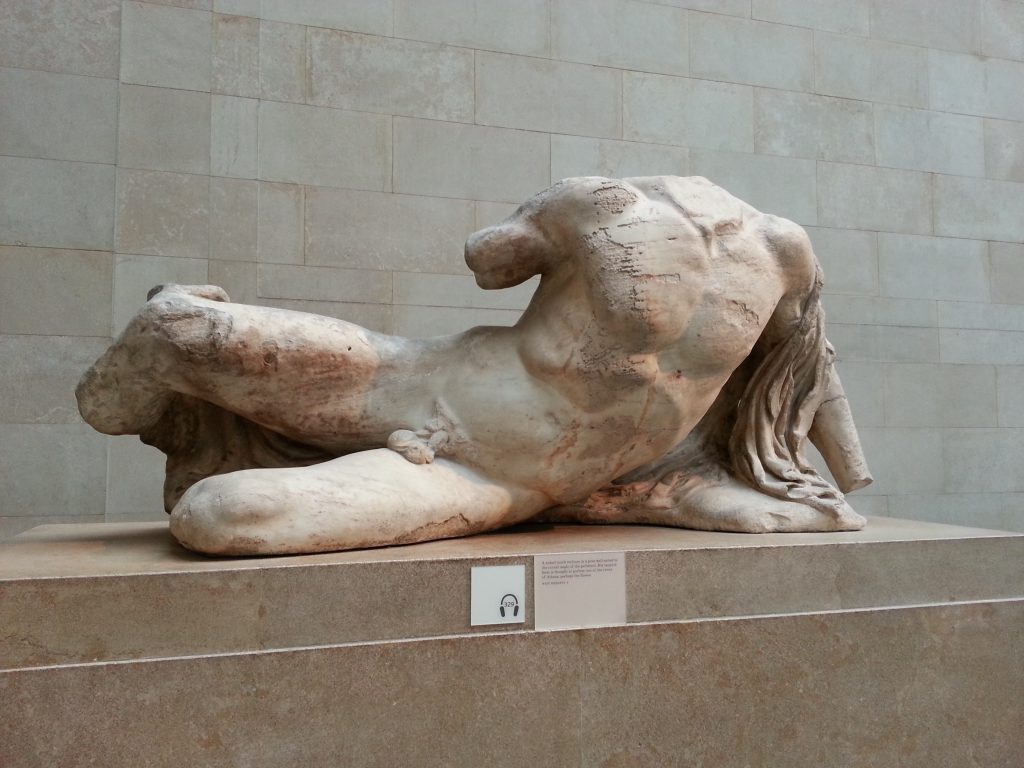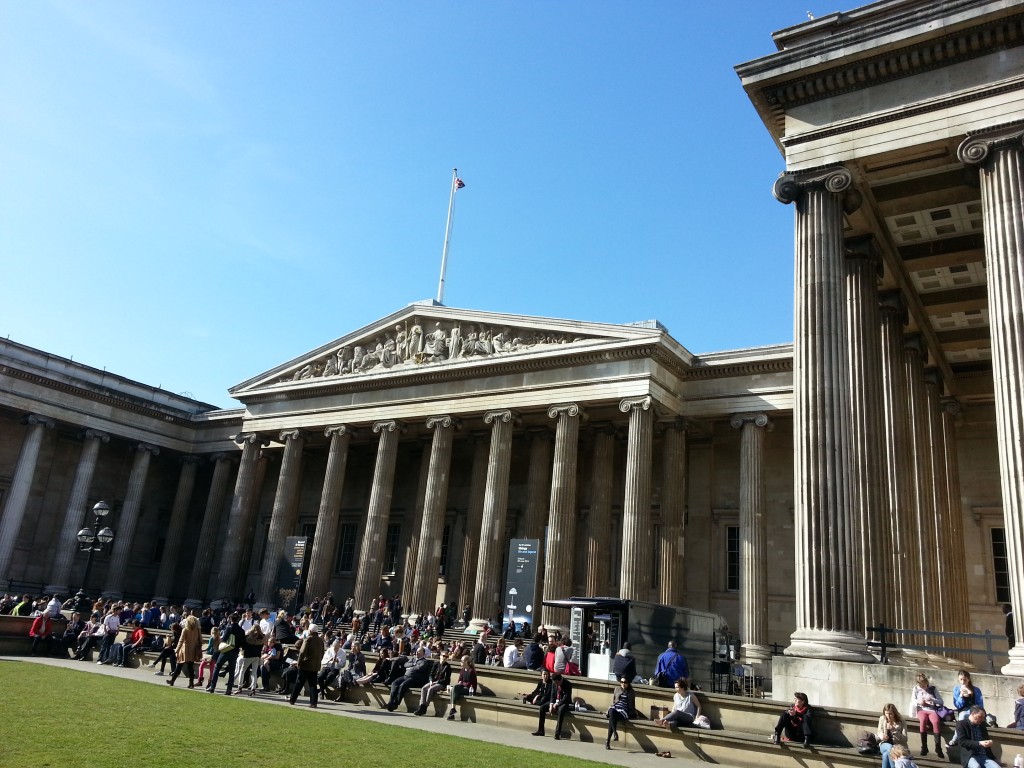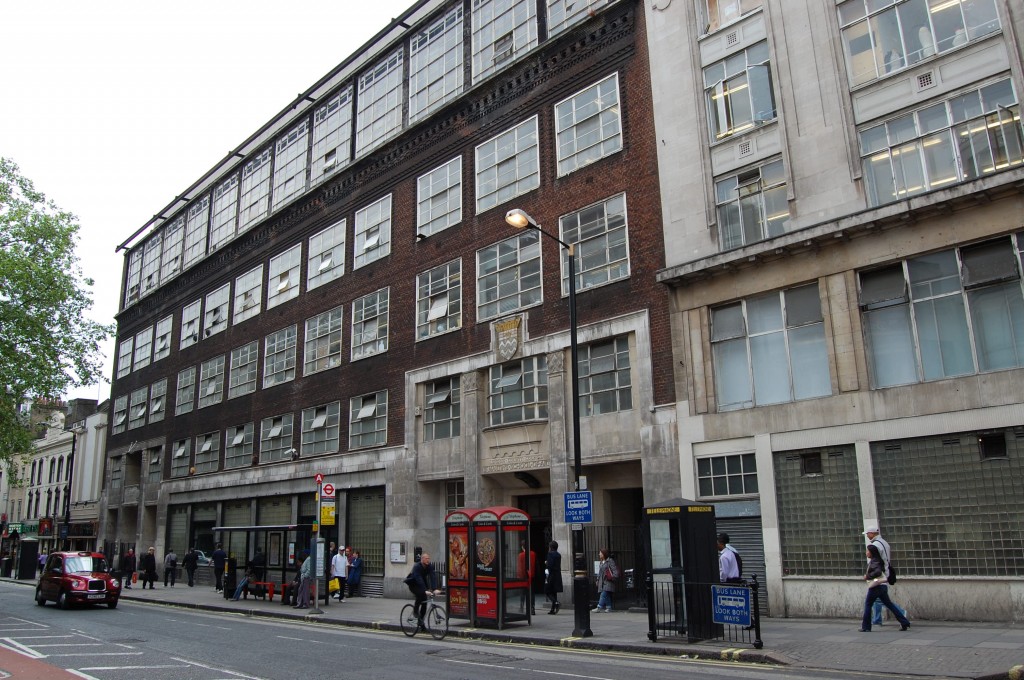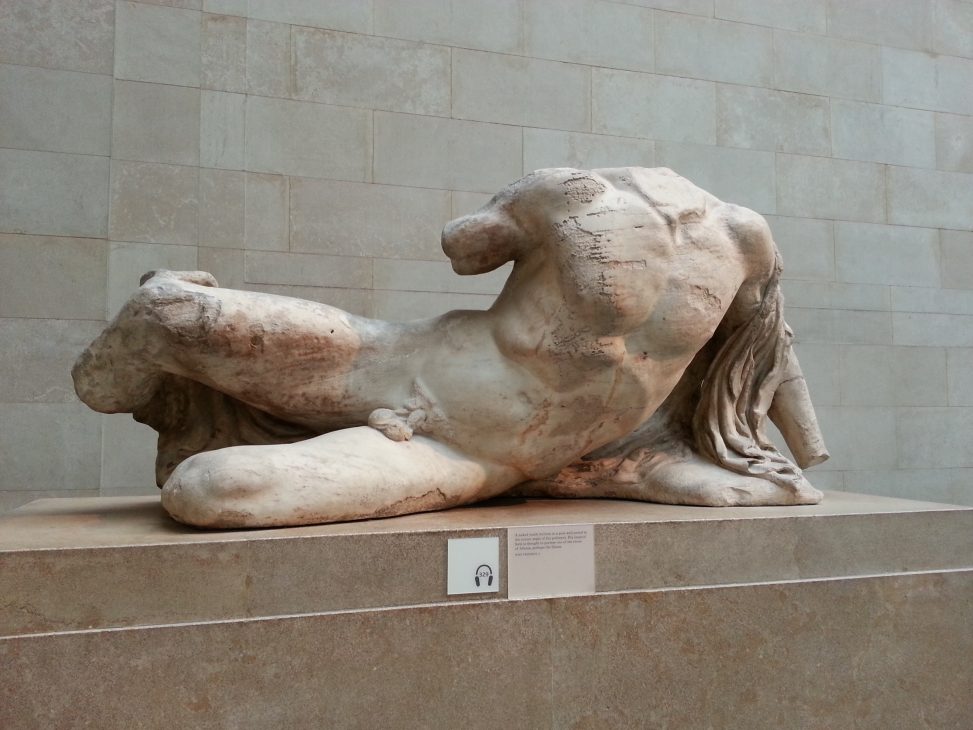The Durham Union Debate took place on the 29th of January, to consider the potential for returning the Elgin Marbles to Greece. James Wroe, President of the Durham Union invited myself and Dominic Selwood to oppose the motion: ‘This House Would Return the Elgin Marbles to Greece’. Nikos and Edith – proposers, made good and fair cases. However, Dominic and me agreed the Marbles should stay in the British Museum.
Mr. Selwood an Oxford scholar of history, argued firmly against their repatriation. He pointed out Elgin was not a thief; Elgin saved the Marbles from destruction and decay. Dominic argued culture does not belong to any country and to insist it does – is nationalistic; museums should not be dismantled. Here follows my own invective:-
As an artist, I studied in London. At the time, it was customary to visit the British Museum and make drawings from statuary and artefacts there.
Back then, I didn’t realise what a privilege it was, I have come to value the opportunity afforded me – free access to a great collection and display of some of the World’s significant artefacts.

This can be particularly useful to anyone studying the fine arts, ancient history or Classics. In a way, it’s better to work from original statuary, rather than casts, both of which I’ve done. I used images of fighting Lapiths and Centaurs, set against distressed grounds – echoing the dishevelled habitat of squats, drug and alcohol abuse which were my life at the time. I super-imposed Classical imagery over these grounds, identifying my personal struggles with mythical imagery.

The Durham Union Debate allowed people to consider many arguments both for and against the repatriation of the Elgin Marbles. Personally I’m in favour of retaining them within the British Museum, in London. Not out of any misplaced sense of Empire or Britishness or jealousy. The Elgin Marbles have been in the museum for a long time. They have become part of the fabric of central London. To relocate them is to begin a process of erosion which will deplete and alter the substance of our capital city in a negative way.
The British Museum, and the University of London form a social and cultural hub in Bloomsbury, where an international community including ordinary people – congregate freely to learn about and savour the wonders of World history.

The British Museum is owned by the state, therefore ultimately it belongs to the citizens of this country. As emissary of the state, the British Museum exerts a democratic influence amidst the excesses of capitalism which manifest themselves in major cities. Anyone can access the collections in the museum, at present it doesn’t require wealth or social status to do so. The social freedom we know and feel in Bloomsbury is part of a wider cultural phenomenon, echoing Britain’s halcyon days in the swinging 60s.
Tinkering with the fabric of state by removing the Elgin Marbles, conjures a horrible scenario. No sooner would the Duveen Galleries be emptied than some greedy twerps in planning would come up with the idea of turning them into luxury flats – which would be purchased by super rich globe-trotters as investment homes, then left to stand empty. Introducing a similar rot to the heart of the capital, as we see in areas like Islington and the various millionaire’s rows in North London. Witness the mansions owned by plutocrats from abroad, who don’t live there – but leave them to decay.

My own alma mater – St. Martin’s School of Art, has been turned into ‘luxury flats’ – removed from the people who paid for it (through taxation) and to whom it was once available. The argument for doing so (I suspect) being financial, stream-lining art education facilities in London. However, St. Martins’ character derived from it’s location. Something which has been traded in, so rich kids can hang out in style.
But perhaps the greatest reason (in my opinion) to retain the Elgin Marbles is the issue of avoiding setting a precedent. There are an estimated 8 million artefacts in the museum’s possession; repatriating the Elgin Marbles would condone a policy of doing so across the board. All aggrieved parties would want to claim their cultural property; there would quickly be no museum. According to such a principle, this would resonate throughout the World, and has the potential to damage or destroy all museums.

Britain has a colonial past and it is folly to deny as much or to attempt to atone for any nation’s misdemeanours, retrospectively. What’s done is done and can’t be changed by acts of self-flagellation in the present. Should the USA give back the lands taken from native Americans? There is a moral case for this, but picture the practical consequences. Should the British people hold Italy to task because the Roman empire enslaved their forbears? Exactly how much might we demand in compensation? and could the Italian state actually make reparation? Perhaps The Durham Union Debate might be about some of these topics in future.
It is counter-productive to indulge in a culture of shame and guilt over such matters. Greece once had an Empire and the ancient Greeks used slave labour, force and violence to achieve their ends. The Elgin Marbles (and all Greek artefacts) can be construed as being emblematic of such values. On that basis, shouldn’t we just smash the Marbles and have done with the matter?
I suspect the controversy has something to do with Greek sentiment regarding the British government’s intervention in the Battle of Athens during 1944 (if Auntie Internet can be trusted) – ie a long held grudge. But British forces also liberated parts of the Greek mainland from Nazi occupation.
Returning the Elgin Marbles might appear to salve our consciences,
but at present does Britain need the kudos this might bring? What quid pro quo might we see from Greece and the World? Our soft power is good and doesn’t require upgrading. We already contribute a higher proportion of GDP in foreign aid compared to many others, we rank fourth in the World for this.
So why should we repatriate the Elgin Marbles? They have become part of the national fabric and London is as good a place as any to display them.
The foregoing is the gist of Alan Dedman’s argument for the opposition, along with Dominic Selwood at the Durham Union Debate, on the 29th of January, 2021 – titled: ‘This House Would Return the Elgin Marbles to Greece’.
Anyone interested in purchasing an original drawing by Alan Dedman, made on the theme of the Elgin Marbles – please leave a message and details on the contact form below. Your personal data will not be publicly visible or shared.

Leonard Mair
Very interesting, and a line of argument with which I am broadly in agreement. However, in the interests of balance (and as a former mediator) I would be interested to read the thrust of the contra argument. I can guess what it might be, but with guessing comes the potential for unconscious prejudice. It seems to me that there are three main lines of argument – legal, moral and cultural. Irrespective of which side of the debate you support there is conflict between these three dimensions. There is probably never going to be a universally accepted resolution to this issue.
admin
Thanks Leonard. Got LAC work to do this afternoon, so can’t tarry over replying but will probably do a post-mortem analysis sometime soon.